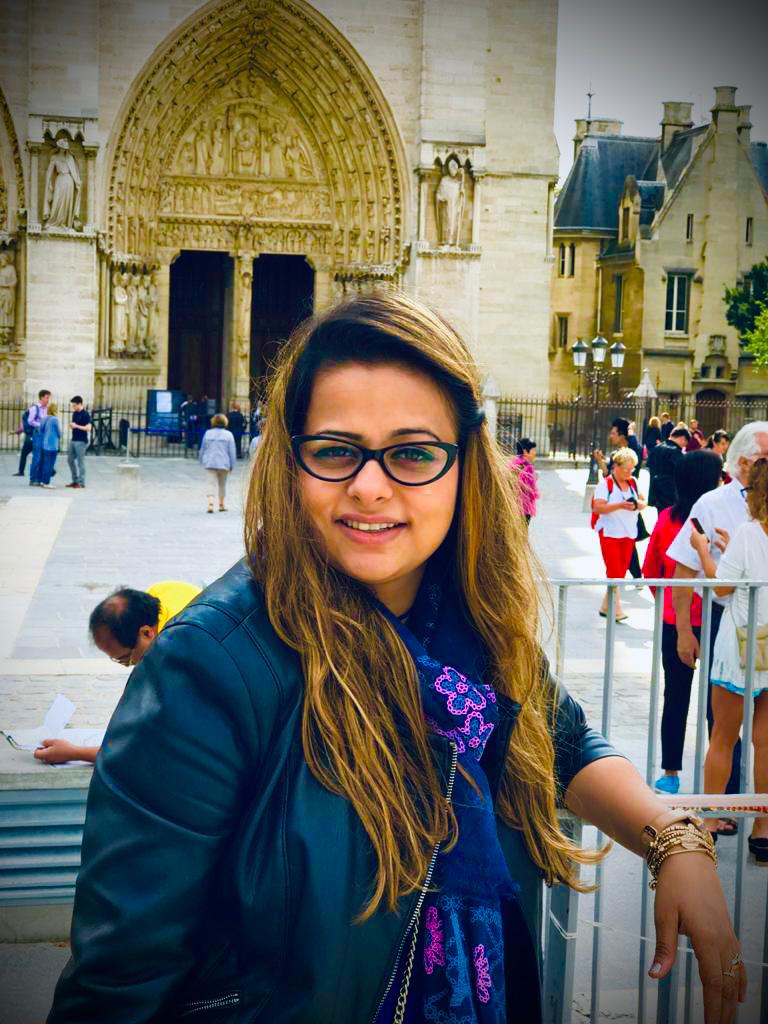New Social Media Policy Is a Crackdown, says Sujata Pandey

The Union Government’s decision to announce new rules- -the Information Technology (Guidelines for intermediaries and digital media ethics code) Rules, 2021 or consider it as New Social Media Policy aims at preventing misuse of social media platforms. It is a fact that there is a lot of hate speech on social media from all corners. Social media is being misused for various socio-political reasons. Fake news on social media is yet another concern. There was a need to put an end to fake news as well as hate speech. Social media is often used for both and the country needs to fight it. Two questions remain to be answered. First, it is the right time to implement the new rules? Secondly, Is it a crackdown by the government on the pretext of self-regulation?
The new code of ethics requires social media platforms such as Facebook, YouTube, and Twitter to remove ‘objectionable’ content within 36 hours of being notified. The New Rules also require social media platforms to provide information, including related to verification of identity, to lawfully authorized agencies within 72 hours.
Ravi Shankar Prasad, Union Information Technology Minister, while announcing the new rules, claimed that the Government welcomes criticism and the right to dissent. However, it is important that social media users running into crores should be given a platform for raising their grievances to raise complaints about abuse of social media, he added.
Currently, in India WhatsApp has nearly 53 crore users, YouTube about 48 crore users, Facebook about 41 crore users, and about 1.75 crore people use Twitter. The government has been putting pressure on social media platforms for self-regulation and draft rules were in the public domain for views. A recent tussle between the government and Twitter over the removal of certain content related to the ongoing farmers’ protests also prompted the announcement of the new rules. On the issue of tracing the originator of the messages, the government was at the loggerheads with the Facebook-owned Whatsapp. Facebook, citing the privacy clause, had refused to comply with the government’s request to trace the origin of a fake message.
“No doubt, new guidelines would protect the interest of the sovereignty and integrity of India. Moreover, it would also take care of public order; decency or morality; defamation; incitement to an offence, or information that violates any law for the time being in force. However, the timing of the announcement raises some questions. Five states are slated to go for polls by June-end. Political propaganda is always a concern. We were waiting for new rules for two years, another four months wait would have been a better option, ” said Sujata Pandey, Political Analyst.
“Our government has several times attempted to curb the misuse of social media platforms. Now we cannot forward WhatsApp messages to more than five people at a time. It is, though restrictive, but helps in checking rumours. Understandably, people would link the New Social Media Policy to the Assembly elections especially in West Bengal where the BJP has launched a frontal attack on the ruling TMC. Apart from West Bengal, Tamil Nadu, Assam, Kerala, and Puducherry will be going for polls by June-end,” she added.
In 2018, when Prime Minister Narendra Modi said no more ‘dirt’ on social media, people feared a crackdown on the new age information medium. But the government was not in hurry and it waited more than two years to generate a consensus carefully. Prime Minister Modi and Union Home Minister Amit Shah are among those who use social media platforms very efficiently and effectively.
And under their leadership, Bharatiya Janata Party(BJP) social media cell is not only hyperactive but has become a powerful digital tool to create favourable opinions for the party and governance. Propaganda is an old age practice through various mediums such as pamphlets, books, and newspapers. However social media platforms have given it a new dimension with a very wide outreach for disinformation.
Indian lawmakers had questioned Twitter’s decision to suspend Union Home Minister Amit Shah’s account for half an hour in November last year. The microblogging site had explained that the action was taken as per their policy after algorithms flagged a copyright issue regarding a picture posted. Post electoral defeat, Twitter had suspended Former US President Donald Trump’s account when his propaganda started creating public disorder and chaos. It is also a fact that some accounts in India have not been banned despite similar violations.
Social harmony has always been a priority. Thus, it becomes imperative for each stakeholder to see rationality in these guidelines. Our country has a long historical tradition of debating one’s point of view or difference of opinion is taken as a positive approach. We are always opposed to silencing a critic whether philosophical or religious or scientific. Respect for all points of view is our way of life. Fake news, rumours, and propaganda create disharmony in society. So, let us hope with the new rules in place, social media platforms and users would have a sense of responsibility in maintaining social harmony. By leveraging the benefits of the digital world with positivity we would surely move towards a higher stage of advancement.